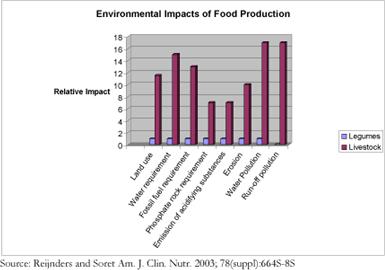Presentation today to the Hon. Chris Carter
1 October 2006
Open letter to Hon. Mr Chris Carter (Minister of Conservation)
Dear Mr Carter,
October 1st is World Vegetarian Day and in recognition of that day we make an impassioned plea to you and all New Zealanders for recognition that, along with other advantages, vegetarianism is good for conservation. The planet earth on its current path is approaching certain peril as the fast growing human population must deal with being able to feed itself, while protecting the habitat of numerous endangered species and at the same time reversing the trend of rising atmospheric carbon and global warming.
We believe most New Zealanders are conservation minded and do not want to see the demise of other species and their precious habitats. However, few of us recognise the link between our own lifestyle/ecological footprints and the success of other species.
One third of the earth’s entire land-based surface area (3 billion hectares) is dedicated to the production of livestock for human consumption and this is placing huge pressures on the ability of other species to thrive and indeed survive. A plant based diet for the human population would cut this dependency on land space by 90%. Food and Agricultural Organisation (FAO) researchers have identified agricultural expansion as a common factor in almost all studies on deforestation. While the most optimistic conservationists believe that tripling yields of existing farmlands will help prevent taking additional wild lands for food production, more and more fertile areas are affected by drought linked to global warming and changing weather patterns. Furthermore, many species are already on the brink of extinction due to the fragmentation of their habitats while the number of undernourished people worldwide is increasing.
The following are examples of unsustainable environmental inefficiencies in New Zealand and overseas:
- New Zealand has already lost most vast areas of its lowland Kahikatea forest to cattle production, and is increasingly spoiling its riparian habitats through run-off from dairy and other intensive farms.
- China has been increasing its meat consumption by 10 percent per year for the last fifteen years necessitating continual increases in the land area devoted to producing food for livestock and thereby reducing biodiversity.
- India is getting one-third of the fodder for its 400 million dairy animals by stripping leaves and branches from its forests.
- Indonesia and Brazil have been clearing tropical forest lands to grow soybeans for livestock feed.
- Methane and nitrous oxide produced as a bi-product from animal farming, is adversely affecting the ozone layer. A reduction of just 2 cow-based meals a month can reduce a family’s annual greenhouse gas emissions by a third of a tonne!
In the
21st century the exponential rise in world population will
necessitate the use of land more efficiently in food
production to create space for forests that can function as
carbon sinks and also sustain a diverse range of life forms.
Our own survival will depend on the success and abundance of
precious rain forests as balanced and sustainable
ecosystems.
A recent study by the University of Chicago
estimated that switching from a standard American diet to a
plant based one would be as effective in reducing global
warming as trading an SUV for a Prius hybrid car. Global
warming in itself is threatening the survival of many
species as they are being backed into ecological corners,
resulting in population disappearances, and disrupted
ecosystems.
It's nothing more than common sense. Our ecological footprint needs to be much smaller than it is if we are to begin to leave this world in a better state for our children and their children's children.
Finally, the graph below derived from recent analysis by scientists at the Institute of Biodiversity and Ecosystem Dynamics, University of Amsterdam, shows the relative impact of livestock production compared to legumes.
Please accept a small token of organic fruits and vegetables from the NZ Vegetarian Society as a symbolic gesture and a reminder that organically grown plants place less stress on the environment.
Yours sincerely,
Margaret Johns
President
New Zealand Vegetarian Society
Inc.
ENDS



 Gordon Campbell: On Why We Can’t Survive Two More Years Of This
Gordon Campbell: On Why We Can’t Survive Two More Years Of This New Zealand Police: More Than $2.5m Worth Of Assets Restrained In Undeclared Tobacco Case
New Zealand Police: More Than $2.5m Worth Of Assets Restrained In Undeclared Tobacco Case SPCA: Survey Shows Government Lacks Mandate To Repeal Live Export Ban
SPCA: Survey Shows Government Lacks Mandate To Repeal Live Export Ban Peace Action Ōtautahi: Bridge Of Remembrance Peace Protest
Peace Action Ōtautahi: Bridge Of Remembrance Peace Protest National Wetland Trust: Public Asked To Help Prevent Fires In Wetlands This Summer
National Wetland Trust: Public Asked To Help Prevent Fires In Wetlands This Summer Lillian Hanly, RNZ: The Year In Politics - Stories That Dominated The Headlines In 2024
Lillian Hanly, RNZ: The Year In Politics - Stories That Dominated The Headlines In 2024 Waikato Regional Council: Studies Open Door To Mercury Islands Underwater World
Waikato Regional Council: Studies Open Door To Mercury Islands Underwater World


